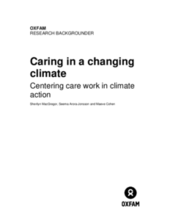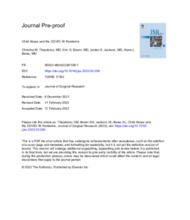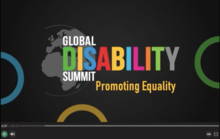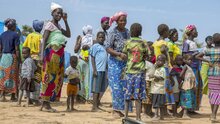Displaying 811 - 820 of 4424
The aim of this report is to fill a knowledge gap by examining the points of interaction between climate change impacts and the amount, distribution, and conditions of unpaid care work. We focus on care workers rather than those who are cared for, while stressing the relational nature of care and acknowledging
that carers too require care.
The COVID-19 pandemic had widespread effects, including enhanced psychosocial stressors and stay-at-home orders which may be associated with higher rates of child abuse. The researchers aimed to evaluate rates of child abuse, neglect, and inadequate supervision during the COVID-19 pandemic.
The goal of the summit was to lead lasting change in the lives of millions of people with disabilities. To succeed, it is crucial that governments, international organizations, civil society and private business commit themselves to increased efforts to promote inclusion and rights-based development.
This side event to the 2022 Global Disability Summit, organized by major global disability right groups gathered around the Global Coalition on Deinstitutionalization, aims to overcome such gap and bring attention to the important UN process of development of the Guildelines on Deinstitutionalization.
This online event is a side panel event of the 60th Session of UN Commission for Social Development.
The Global Disability Summit offers a concrete mechanism for collecting new, ambitious, and widespread commitments which are critical to achieving real change for persons with disabilities.
The side event of the Commission for Social Development is to address current migration trends and their impact on families. In line with the priority theme of the Commission, “Inclusive and resilient recovery from COVID-19 for sustainable livelihoods, well-being and dignity for all: eradicating poverty and hunger in all its forms and dimensions to achieve the 2030 Agenda”, the event will also address migration and its role in poverty reduction and its contributions to the achievement of the relevant Sustainable Development Goals.
Last year, the SAYes Alumni Group kicked off the first in a series of online networking events by care experienced young people from accross the globe. They are extending this event series into 2022. At the next event the Youth Care Leavers Association, India (YCLA) will lead a presentation "Moving Ahead: Experiences (Challenges and Initiative) of Youth Care Leavers in India" which will then be followed by break-out room discussions for #CEP and #CEP supporters to connect and create new ideas for change.




